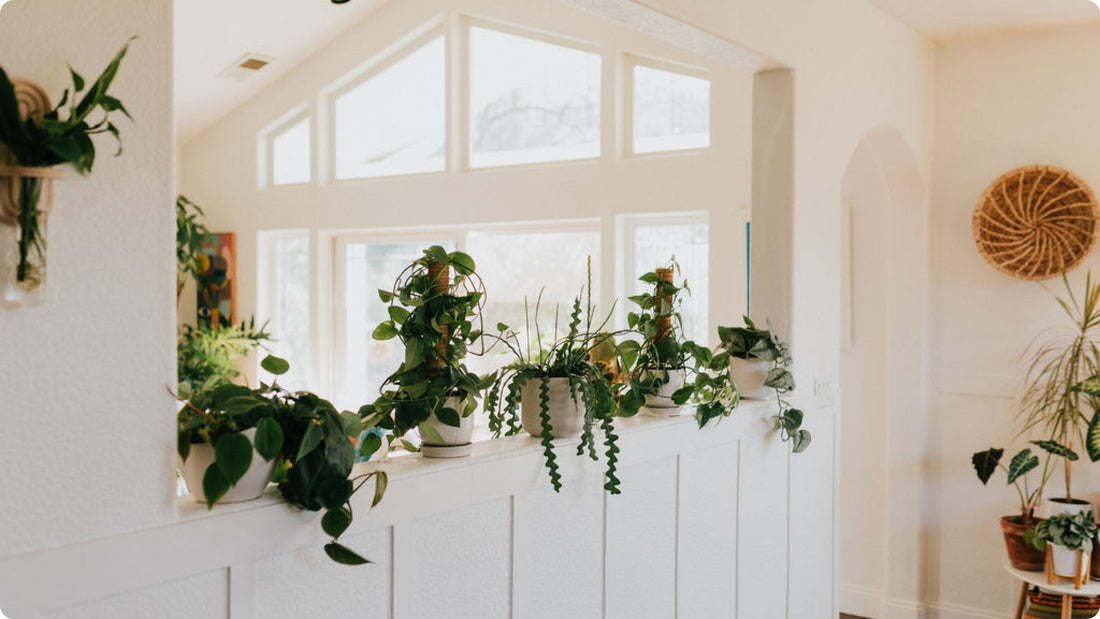How To Grow Ficus Black Princes With Hydroponics
Cafe Planta Team
So, you're thinking about growing Ficus Black Princes using hydroponics. That's an excellent choice! These stunning plants, with their dark, glossy leaves, can bring a touch of elegance to any room. Plus, using hydroponics means you're stepping into a world of clean, soil-free plant care that can be both fun and rewarding.
This article will guide you through everything you need to know to grow Ficus Black Princes hydroponically. From setting up your system to maintaining your plants, we've got you covered. Let's get started!
Getting to Know Your Ficus Black Princes
Before diving into the technical aspects of hydroponics, it’s worth taking a moment to understand what makes Ficus Black Princes so special. These plants are a variety of the Ficus elastica, known for their striking dark leaves that almost appear black under certain lighting conditions. They’re robust and adaptable, making them ideal candidates for hydroponic growth.
Interestingly, Ficus Black Princes are relatively low-maintenance. This makes them perfect for plant lovers who might not have a green thumb yet. Their resilience comes from their natural habitat—these plants originate from the tropical regions of Asia, where they thrive in warm, humid environments. In your home, they can adapt to a range of conditions, but they do appreciate some extra care when grown without soil.
Now, why hydroponics? Well, growing your Ficus Black Princes in water can offer several advantages, including faster growth rates and better control over nutrients. Plus, it eliminates the mess of soil, making it a great option for indoor gardening. Let's look at what you'll need to get started.
Setting Up Your Hydroponic System
First things first, you'll need to set up a hydroponic system tailored to your Ficus Black Princes. Don’t worry, it’s not as complicated as it sounds! There are several types of hydroponic systems, but for beginners, the Kratky method or a simple deep water culture (DWC) system can be ideal.
Here’s a quick rundown of what you’ll need:
- Containers: Start with a pot or container that can hold your plant securely. It should be opaque to prevent light from reaching the roots and algae from forming.
- Net pots: These will house your plants and allow their roots to dangle in the nutrient solution.
- Growing medium: While soil is out, you’ll need something to support your plant, like clay pebbles or perlite.
- Nutrient solution: This is where the magic happens. You'll need a balanced hydroponic nutrient mix tailored for leafy greens.
- pH meter: Keeping the pH balanced is crucial. Aim for a pH of around 5.5 to 6.5.
Once you have your materials, set up your system by filling the container with nutrient solution and placing the net pot with the growing medium and plant into it. Ensure the solution touches the roots without submerging the plant entirely.
The Right Light and Temperature
Lighting plays a crucial role in the health of your Ficus Black Princes. While they can adapt to lower light levels, they thrive under bright, indirect light. If you're placing them away from a window, consider investing in LED grow lights. These are energy-efficient and can mimic the sunlight your plant craves.
Temperature is another factor to consider. Ficus Black Princes prefer temperatures between 60°F and 75°F. Too cold, and you might notice slower growth or leaf drop. Too hot, and the plant could become stressed.
If you're worried about maintaining the right temperature, a simple room thermometer can help you keep track. Remember, consistency is key. Sudden drops or spikes in temperature can be quite stressful for your plant.
Feeding Your Ficus: Nutrient Solutions
In hydroponics, nutrients are everything. Since your Ficus Black Princes won’t be getting nutrients from soil, you'll need to provide a well-balanced nutrient solution. This usually includes nitrogen, phosphorus, potassium, and trace minerals like magnesium and calcium.
You can find pre-mixed hydroponic nutrient solutions online or at gardening stores, which are perfect for beginners. Follow the instructions on the package for the right dilution, and remember to change the solution every two weeks. This prevents nutrient lockout and keeps your plant healthy.
Keep an eye on the pH level, too. If it's off, your plant might not be able to absorb the nutrients it needs. Adjusting the pH can be done using commercial pH up or down solutions.
Maintaining Water Levels and Quality
One common mistake in hydroponics is neglecting water levels. The roots of your Ficus Black Princes should always be in contact with the nutrient solution, but the main stem should stay dry. If the water level drops too low, the plant will struggle to take up nutrients. Too high, and you risk drowning it.
Regularly check the water level and top it up as needed. This is especially important in warmer climates where evaporation can occur quickly. Also, consider using distilled or filtered water to prevent mineral buildup from tap water, which can be harmful over time.
Pruning and Training Your Plant
Ficus Black Princes can grow quite large, so regular pruning is essential to keep them manageable and healthy. Pruning encourages bushier growth and prevents your plant from becoming leggy. Use clean, sharp scissors to trim any dead or yellowing leaves and to shape the plant as you like.
If you want a fuller appearance, consider pinching back the growing tips. This encourages the plant to branch out more, creating a lush canopy of leaves. Just be careful not to remove more than a third of the plant at one time, as this can stress it.
Watching for Common Issues
Even in hydroponics, Ficus Black Princes can encounter a few problems. Watch out for yellowing leaves, which might indicate nutrient deficiencies or pH imbalances. If you notice brown spots, it could be a sign of too much direct sunlight or water quality issues.
Pests aren’t a huge issue in hydroponic systems, but they can still appear. If this happens, a gentle spray of neem oil or insecticidal soap can help keep them at bay. Be vigilant and check your plants regularly for any signs of trouble.
Benefits of Hydroponics for Indoor Plants
Growing plants hydroponically offers several benefits for indoor gardeners. Not only does it save space, but it also allows for precise control over nutrients and water. This can result in faster growth and healthier plants. Plus, without soil, there's less mess and fewer pests.
Hydroponics is also incredibly versatile. Whether you live in a small apartment or a spacious home, you can design a system that fits your space and lifestyle. It’s an exciting way to explore plant care and discover how plants respond to their environment.
Final Thoughts
Growing Ficus Black Princes using hydroponics can be a rewarding experience, offering the chance to cultivate beautiful, robust plants in a clean and efficient way. By setting up a simple system, providing the right light and nutrients, and staying vigilant for any issues, you can enjoy these stunning plants in your home.
At Cafe Planta, we love helping people connect with plants. Whether you’re looking for new additions to your collection or need advice on plant care, we're here for you. Feel free to email us or reach out on Instagram. Let’s grow together!

















































